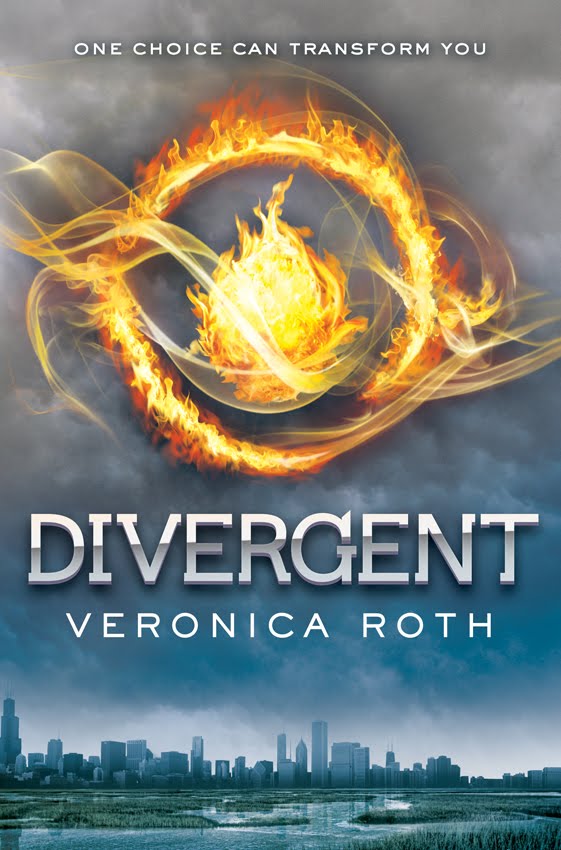Hopefully the Movie Won’t Diverge
Action, romance, and self-discovery converge to make an in-Tris-ting read
It’s clear that there is no shortage of dystopian fiction in young adult novels today. Since The Hunger Games exploded a few years ago, writers and publishers decided that a teenager surviving in a dystopian world – often involved in a love triangle – was the way to a young person’s heart. A mass influx of apocalyptic fiction dominated the market, replacing paranormal romance as the prevalent genre of YA fiction. Many of these novels seem hurriedly put together or merely a compilation of other books that have proven to be good reads. Divergent, the first installment in Veronica Roth’s debut trilogy ranks above the rest.
In Divergent we are introduced to a post-apocalyptic Chicago. The society we know today is replaced with five factions, each based on a particular virtue; honesty, selflessness, bravery, pacifism, and intelligence. In an initiation ceremony during their sixteenth year, each teenager must choose which faction in which to reside. The choice is clear to most; years of contemplation, upbringing, and the highly-anticipated aptitude test are enough preparation for the teens to decide if they belong in their familiar home factions or if a new and exciting virtue calls to them.
Our heroine, Beatrice, however, is unsure of where she belongs and the aptitude test does not clear things up. In fact, it only complicates her once simple way of life. After Beatrice makes her decision, she reinvents herself with a new name (Tris), a new personality, and a new view on life. All Tris has to do to enjoy her new life is keep her secrets hidden.
As can be expected, the government is not what it seems. Tris uncovers secrets that threaten her society’s picture of perfection. The deeper she digs, the less content she becomes with living inside the system. Tris has a choice; turn her head and continue her happy life or do what she knows to be the right choice.
Tris Prior is a strong, independent, and refreshingly personable heroine. Often, the most important thing in a character is the reader’s ability to relate to the character and learn from her experiences. A huge deciding factor in Tris’s life is her initiation, a choice that affects the rest of her life. How can someone so young possibly make such a huge decision that will determine her entire life from that point on? To an extent, this is the pressure modern day teenagers feel when determining their career path and college options. Tris is in a different situation than us, but we still face the same type of pressures and fears.
I think everyone goes through an identity crisis at one point or another, in high school especially. “Who am I? Who do I want to be? How do I want to be perceived? Am I going to be the same person for the rest of my life?” All of these questions are pretty daunting at such a vulnerable age. Like Tris, we go through phases during which we desire to change our names and to chop all of our hair off. (However, Tris refrains from composing macabre poetry and obsessing over moody indie bands.)
Like all normal teenagers, Tris has emotions. Many readers take issue with romantic subplots in Divergent-type books (and Divergent does include a romantic subplot), yet it seems silly to expect a sixteen-year-old girl to turn off her feelings simply because there is a greater task at hand. Tris is a human being; she is selfish and she doesn’t always make the right decisions. Tris is growing up with the rest of us, only she makes us appreciate the fact that our thesis papers are the greatest of our worries.
Divergent does not escape all cheesy plot clichés such as the aforementioned love story and the revolution seeds that Tris plants. Most present day young adult dystopian novels are composed of three things; a love-triangle, “the chosen one,” and a revolution against a corrupt government. Divergent includes two and half of these overused plot points. Luckily, the love story is fairly secondary to the plot and does not distract from the action and the exciting aspects of her world. Tris is not solely focused on winning the guy and he is not solely focused on her. Tris is prepared to kick butt and allows romance (and self-discovery!) to come to her on its own. Fortunately, it is easy to forget about these clichés and get lost in the story and the high quality writing.
Like all great books, Divergent has been recreated as a film. The much anticipated film adaptation hit big screens on Friday, March 21st. Many fans had high expectations, especially regarding Shailene Woodley’s portrayal of Tris. Well-known for her starring role in ABC Family’s drama, The Secret Life of the American Teenager and as George Clooney’s moody teenage daughter in The Descendants, Woodley certainly is on her way to becoming the next Jennifer Lawrence. She is also playing the lead in The Fault in Our Stars, a widely acknowledged and loved young adult novel by John Green. So far, Divergent’s Rotten Tomatoes rating of 40% doesn’t hold much promise and many critics describe it as “not as good as the book” (which is to be expected). However, fans should give themselves a chance to experience the movie without prejudice. If worst comes to worst, we’ll all end up appreciating the novel a bit more.


